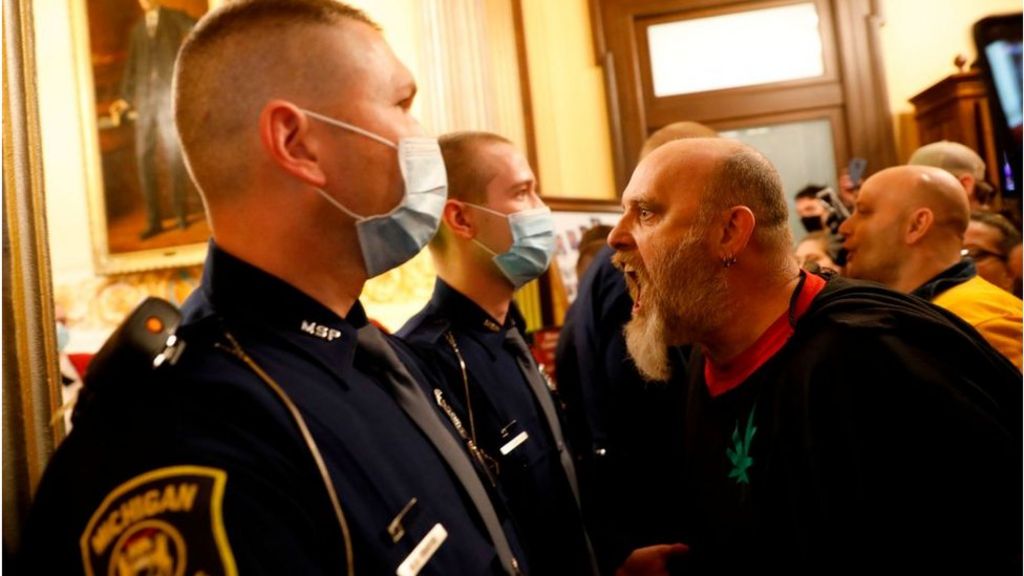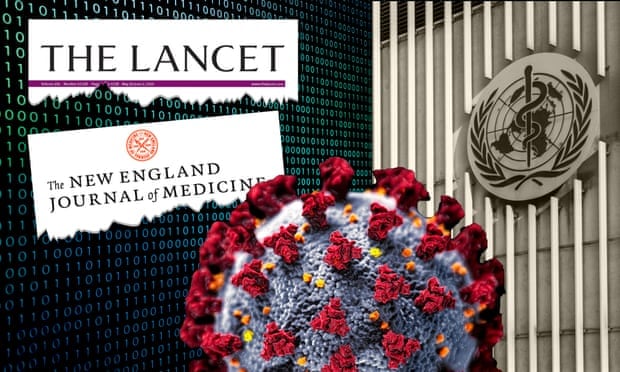You are using an out of date browser. It may not display this or other websites correctly.
You should upgrade or use an alternative browser.
You should upgrade or use an alternative browser.
COVID-19 Pandemic (Coronavirus)
- Thread starter null
- Start date
More options
Who Replied?Yeah, we’ve been discussing the fact that it crosses the blood-brain barrier way back in March. They still aren’t rolling that information out to the Western world. It’s absolutely ridiculous how they’re hiding shyt from the public and giving it to us piecemeal. If you don’t look for the truth with this disease, you’re in the dark.
Long term effects of this disease could be terrible. Will be necessary to see how recovered folks do 5 and 10 years from now
It's interesting how initially this seemed to be a mostly lung focused disease. But as we find out more it's looking more of a blood disease. We're in a moment where there is too much politicization it's hard to parse out the objective information and the information being shared to drive a political beliefs. It's sad we can't even trust we are being told the truth about this shyt.Yeah, we’ve been discussing the fact that it crosses the blood-brain barrier way back in March. They still aren’t rolling that information out to the Western world. It’s absolutely ridiculous how they’re hiding shyt from the public and giving it to us piecemeal. If you don’t look for the truth with this disease, you’re in the dark.
Long term effects of this disease could be terrible. Will be necessary to see how recovered folks do 5 and 10 years from now
null
...
It's interesting how initially this seemed to be a mostly lung focused disease. But as we find out more it's looking more of a blood disease. We're in a moment where there is too much politicization it's hard to parse out the objective information and the information being shared to drive a political beliefs. It's sad we can't even trust we are being told the truth about this shyt.
It's an ACE2 and CD147 binding cellular disease ... It was discussed a few times. These posts include some good references (incl. videos).
coronavirus 19 is a respiratory virus (primarily) - not affecting the blood. I read that it needs to be in the blood for mosquito transfer to happen. The organ damage and discovery of the virus in urine suggests that it could enter the bloodstream.
Early reports said that the organ damage was not directly attributable to cv yet but I just found these.
Here’s what coronavirus does to the body
Coronavirus found in patients’ urine poses challenge to China’s sewer system: expert - Global Times
UPDATE: It seems that SARS Cov II might bind to other receptors than just the previously thought ACE2.

"COVID-19, the novel coronavirus disease caused by SARS-CoV-2 and outbroken at the end of 2019 in Wuhan, China,1 becomes a worldwide pandemic. SARS-CoV-2 belongs to the betacoronavirus genus and has 79.5% identity to SARS-CoV. SARS-CoV-2 uses angiotensin-converting enzyme 2 (ACE2) as its host entry receptor.2 The clinical manifestations of COVID-19 include pneumonia, diarrhea, dyspnea, and multiple organ failure. Interestingly, lymphocytopenia, as a diagnostic indicator, is common in COVID-19 patients. Xiong et al. found upregulation of apoptosis, autophagy, and p53 pathways in PBMC of COVID-19 patients.3 Some studies reported that lymphocytopenia might be related to mortality, especially in patients with low levels of CD3+, CD4+, and CD8+ T lymphocytes.4,5 Lymphocytopenia was also found in the Middle East respiratory syndrome (MERS) cases. MERS-CoV can directly infect human primary T lymphocytes and induce T-cell apoptosis through extrinsic and intrinsic apoptosis pathways, but it cannot replicate in T lymphocytes.6 However, it is unclear whether SARS-CoV-2 can also infect T cells, resulting in lymphocytopenia.
To address this question, we evaluated the susceptibility of T lymphocytes to SARS-CoV-2 infection."
SARS-CoV-2 infects T lymphocytes through its spike protein-mediated membrane fusion
from 12 Apr

‘Renting is cheaper than buying’ as Covid-19 batters Hong Kong property
from Jan / Feb 2020

Reduction and Functional Exhaustion of T Cells in Patients with Coronavirus Disease 2019 (COVID-19)
This might explain previous observations re.
1. Covid19 attacking the immune system - early discussion of similarity to HIV (Feb) - NOTE: this is not saying the Cov19 virus has spliced HIV sequences!
2. Covid19 attacking other organs - liver, heart
3. Covid19 attacking blood cells - discussions suggesting it is a blood rather than a respiratory disease.
4. Covid19 being worse for the immune depressed
5. Why HIV antivirals have been effective treatments
6. Why Anti-malaria drugs are effective treatments
New studies suggest that other protein binding (CD147) binding takes place which allows for Covid to attack T-cells.
ts 9m
What does this all mean?
It is a possible explanation as to why the effects of Covid19 are so varied and why it spreads so quickly.
Hopefully there will be more discussions about this in the coming days.
EDIT: reddit discussion
I am seeing more studies questioning the classification of Covid19 primarily as a respiratory illness.
A large number of patients are dying suddenly from heart attacks, hypoxia, aneurysms or blood clots after remission and recovery from respiratory ailments and after clear RT-PCR tests based on nasal swabs. Often silent hypoxia it should be noted, without difficulty breathing.
As such it could also be classified as a cardio-vascular disease as well as a respiratory one.
This is discussed in depth here:
"Dr. Seheult explains the theory that seems most plausible to us here at MedCram.com: That COVID-19 is primarily a disease of the endothelium (the single layer of cells that line blood and lymphatic vessels). This hypothesis helps explain the increase in cardiovascular complications from COVID-19: strokes, myocardial infarctions, thromboembolism (pulmonary embolism, DVTs, and other blood clots), as well as many critical patients who do not appear to have classic ARDS symptoms (and have relatively normal lung compliance etc. as observed by the research of Dr. Gattinoni in Italy and others). A deep understanding of this theory requires a review of some foundational biochemistry including the electron transport chain and ATP - the energy currency of the body."
And reports such as ... (yes only reports and only DM but see quotes....)
"New York City Emergency Medical Services (EMS) Chief Lillian Bonsignore told ABC News: 'It was astounding. We went from normal to wartime EMS in a week. And then it was just explosive and it continued."
"'We went from about 70 or 80 [cardiac arrests] a day which is what we normally do, to almost five times the amount,' Bonsignore said. 'I really was very surprised. I've never experienced a global pandemic.'
New York City EMS call data broken down by zip code shows that the increase in cardiac arrest calls and deaths aligned with the increase in COVID-19 cases.
Dr Fred Jacobs, the former commissioner of health in New Jersey, told ABC News that the 'data is showing an increase in cardiac arrest calls in the areas that also show an increase in COVID-19. So the question will be, "Is it causative?".'"
"But COVID-19 also has a unique weapon that allows it to attack the heart.
'With COVID specifically, what you see that you don't with the flu, is because under a microscope, coronavirus has all these spikes coming out of it, and those spikes are little proteins that are looking for receptors on the cells that they attach onto,' Dr Bonow explained.
'It's specifically looking for receptors in the lungs, but those same receptors sit on blood vessels, so it can attach on the lungs but also on blood vessels.'
Once they dock onto these blood vessel cells, the viral particles can trigger damage to these as well as to heart muscle, Dr Bonow says.
They can trigger 'hypercolagual states,' causing blood clots that lead to heart attacks.
In younger and healthier coronavirus patients, the heart muscle itself may become infected, a condition called mycarditis. "
New York City's heart attack spike could have been early sign of COVID-19 | Daily Mail Online
This study discusses the high incidence of clots with Covid 19 sufferers.
https://www.thrombosisresearch.com/article/S0049-3848(20)30120-1/pdf
This is not conclusive (of course) but it is looking more and more to me as if the effects outside of the lungs are significant enough for the classification of SARS Cov 2 to be broadened.
Also saw this just now
ts = 24m45s
Like a bunch of us have been saying, P100 full face respirators or
 with any social activity. Yes that includes protests.
with any social activity. Yes that includes protests.FRIED MASON
Superstar
null
...
They should comment on the Roche test specifically which claims 100%/99.8%.
Lol that shyt messy bro. Chris Martenson @ Peak Prosperity gonna go in

CreepyMcCreeperson
Veteran
Bruce Wayne
THE GODDAMN BILLIONAIRE
tremonthustler1
aka bx_representer
First day NYC didn’t have a coronavirus death 

Seems like such a long time ago that this guy could have possibly killed one of these cops or their family members 



XannyWarbucks
Superstar
crazy. I expect it to go up, but still. also, comparing cases from now to our peak is whew. Like I said, expect it to go up, but let's hope people really did develop anti-bodies for it.First day NYC didn’t have a coronavirus death
loyola llothta
☭☭☭

4 June 2020
Surgisphere: Governments and WHO Changed COVID-19 Policy Based on Suspect Data From Tiny US Company
We bring to the attention of our readers selected quotes from a report published by The Guardian.
“The World Health Organization and a number of national governments have changed their Covid-19 policies and treatments on the basis of flawed data from a little-known US healthcare analytics company, also calling into question the integrity of key studies published in some of the world’s most prestigious medical journals.
Read the complete article hereA Guardian investigation can reveal the US-based company Surgisphere, whose handful of employees appear to include a science fiction writer and an adult-content model, has provided data for multiple studies on Covid-19 co-authored by its chief executive, but has so far failed to adequately explain its data or methodology.
Data it claims to have legitimately obtained from more than a thousand hospitals worldwide formed the basis of scientific articles that have led to changes in Covid-19 treatment policies in Latin American countries.
It was also behind a decision by the WHO and research institutes around the world to halt trials of the controversial drug hydroxychloroquine. On Wednesday, the WHO announced those trials would now resume.
Two of the world’s leading medical journals – the Lancet and the New England Journal of Medicine – published studies based on Surgisphere data. The studies were co-authored by the firm’s chief executive, Sapan Desai.
Late on Tuesday, after being approached by the Guardian, the Lancet released an “expression of concern” about its published study. The New England Journal of Medicine has also issued a similar notice.
An independent audit of the provenance and validity of the data has now been commissioned by the authors not affiliated with Surgisphere because of “concerns that have been raised about the reliability of the database”.


